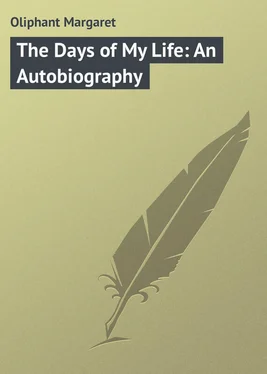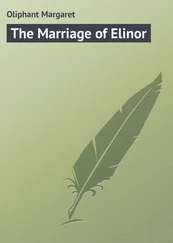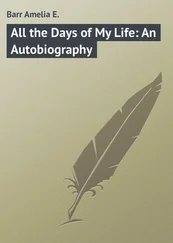Margaret Oliphant - The Days of My Life - An Autobiography
Здесь есть возможность читать онлайн «Margaret Oliphant - The Days of My Life - An Autobiography» — ознакомительный отрывок электронной книги совершенно бесплатно, а после прочтения отрывка купить полную версию. В некоторых случаях можно слушать аудио, скачать через торрент в формате fb2 и присутствует краткое содержание. ISBN: , Жанр: foreign_prose, на английском языке. Описание произведения, (предисловие) а так же отзывы посетителей доступны на портале библиотеки ЛибКат.
- Название:The Days of My Life: An Autobiography
- Автор:
- Жанр:
- Год:неизвестен
- ISBN:http://www.gutenberg.org/ebooks/43404
- Рейтинг книги:5 / 5. Голосов: 1
-
Избранное:Добавить в избранное
- Отзывы:
-
Ваша оценка:
- 100
- 1
- 2
- 3
- 4
- 5
The Days of My Life: An Autobiography: краткое содержание, описание и аннотация
Предлагаем к чтению аннотацию, описание, краткое содержание или предисловие (зависит от того, что написал сам автор книги «The Days of My Life: An Autobiography»). Если вы не нашли необходимую информацию о книге — напишите в комментариях, мы постараемся отыскать её.
The Days of My Life: An Autobiography — читать онлайн ознакомительный отрывок
Ниже представлен текст книги, разбитый по страницам. Система сохранения места последней прочитанной страницы, позволяет с удобством читать онлайн бесплатно книгу «The Days of My Life: An Autobiography», без необходимости каждый раз заново искать на чём Вы остановились. Поставьте закладку, и сможете в любой момент перейти на страницу, на которой закончили чтение.
Интервал:
Закладка:
“Oh, Alice! isn’t it miserable?” I cried while I stood by her side, looking round upon the gradual destruction – I did not want to cry; but it cost me a great effort to keep down the gathering tears.
“Sad enough, Miss Hester,” said Alice, “but, do you know, if you had been brought up in a town, you would not have minded a removal; and you shall soon see such a pretty room in Cambridge that you will not think of Cottiswoode – ”
“No place in the world can ever be like Cottiswoode to me,” said I with a little indignation that my great self-control should be so little appreciated. “Of course, I should not wish to stay here when it is not ours,” I went on, rubbing my eyes to get the tears away, “but I will always think Cottiswoode home – no other place will ever be home to me.”
“You are very young, my dear,” said Alice quietly. I was almost angry with Alice, and it provoked me so much to hear her treating my first grief so composedly that the tears which I had restrained, came fast and thick with anger and petulance in them.
“Indeed, it is very cruel of you, Alice!” I said as well as I was able, “do you think I do not mean it? – do you think I do not know what I say?”
“I only think you are very young, poor dear!” said Alice, looking down upon me under her arm, as she stretched up her hands to unfasten the last bit of curtain, “and I am an old woman, Miss Hester. I saw your poor mamma come away from her home to find a new one here; it was a great change to her, for all so much as her child likes Cottiswoode — she liked her own home very dearly, Miss Hester, and did not think this great house was to be compared to it – but she came away here of her own will after all – ”
“But that was because she was married, Alice,” said I hastily.
“Yes! it was because she was married, and because it is the common way of life,” said Alice; “but, the like of me, Miss Hester, that has parted with many a one dear to me, never to see them again, thinks little, darling, of parting with dead walls.”
“Alice, have you had a great deal of grief,” said I reverently; my attention was already diverted from the main subjects of my morning’s thoughts – for I was very young, as she said, and had a mind open to every interest, that grand privilege of youth.
“I have lost husband and children, father and mother, Miss Hester,” said Alice quietly; she had her back turned to me, but it was not to hide her weeping, for Alice had borne her griefs with her for many, many years. I knew very well that it was as she had said, for she had often told me of them all, and of her babies whom she never could be quite calm about – but she very seldom alluded to them in this way, and never dwelt upon her loss, but always upon themselves. I did not say anything, but I felt ashamed of my passion of grief for Cottiswoode. If I should lose Alice – or, still more frightful misfortune, lose my father, what would Cottiswoode be to me.
“But, my dear young lady was pity herself,” said Alice, after a short pause, “I think I can see her now, when I could not cry myself, how she cried for me; and I parted with her too, Miss Hester. I think she had the sweetest heart in the world; she could not see trouble, but she pitied it, and did her best to help.”
“Alice,” said I hastily, connecting these things by a sudden and involuntary conviction, “why is it that papa says: ‘pity is a cheat.’”
“It is a hard saying, Miss Hester,” said Alice, pausing to look at me; and then she went on with her work, as if this was all she had to say.
“He must have reason for it,” said I, “and when I think of that Edgar Southcote presuming to pity us, I confess it makes me very angry – I cannot bear to be pitied, Alice!”
But Alice went on with her work, and answered nothing; I was left to myself, and received no sympathy in my haughty dislike of anything which acknowledged the superiority of another. I was piqued for the moment. I would a great deal rather that Alice had said, “no one can pity you” – but Alice said nothing of the kind, and after a very little interval my youthful curiosity conquered my pride.
“You have not answered me, but I am sure you know,” said I, “Alice, what does papa mean?”
Alice looked at me earnestly for a moment. “I am only a servant,” she said, as if she consulted with herself, “I have no right to meddle in their secrets – but I care for nothing in the world but them, and I have served her all her days. Yes, Miss Hester, I will tell you,” she concluded suddenly, “because you’ll be a woman soon, and should know what evil spirits there are in this weary, weary life.”
But though she said this, she was slow to begin an explanation – she put away the curtains first, carefully smoothed down and folded into a great chest which stood open beside us, and then she began to lift up my few books, and the simple furniture of my toilette-table, and packed them away for the removal. It was while she was thus engaged, softly coming and going, and wiping off specks of dust in a noiseless, deliberate way, that she told me the story of my father and mother.
“My young lady was an only child, like you, Miss Hester,” said Alice, “but her father’s land was all entailed, and it has passed to a distant cousin now, as you know. I think she was only about eighteen when the two young gentlemen from Cottiswoode began to visit at our house. Mr. Brian came as often as your father – they were always together, and I remember very well how I used to wonder if both of the brothers were in love with Miss Helen, or if the one only came for the other’s sake. Mr. Brian was a very different man from your papa, my dear – there was not such a charitable man in the whole country, and he never seemed to care for himself – but somehow, just because he was so good, he never seemed in earnest about anything he wished – you could not believe he cared for anything so much, but he would give it up if another asked it from him. It’s a very fine thing to be kind and generous, Miss Hester, but that was carrying it too far, you know. If I had been a lady I never would have married Mr. Brian Southcote, for I think he never would have loved me half so much as he would have loved the pleasure of giving me away.
“But you know how different your papa was; I used to think it would be a pleasure to trust anything to Mr. Howard, because whatever he had and cared for, he held as fast as life; and my young lady thought so too, Miss Hester. They were both in love with Miss Helen, and very glad her papa would have been had she chosen Mr. Brian, who was the heir of all. It used to be a strange sight to see them all, poor Mr. Brian so pleasant to everybody, and Mr. Howard so dark and passionate and miserable, and my sweet young lady terrified and unhappy – glad to be good friends with Mr. Brian, because she did not care for him; and so anxious about Mr. Howard, though she scarcely dared to be kind to him, because she thought so much of him in her heart. Your papa was very jealous, Miss Hester, it is his temper, and I am not sure, my dear, that it is not yours; and he knew Mr. Brian was pleasanter spoken than he was, and that everybody liked him – so, to be sure, he thought his brother was certain to be more favored than he – which only showed how little your papa knows, for all so learned a man as he is,” said Alice, shifting her position, and turning her face to me to place a parcel of books in the great chest; “for Mr. Brian was a man to like, and not to love.”
She was blaming my father, and, perhaps, she had more blame to say; but her blame inferred more than praise, I thought, and I listened eagerly. Yes! my father was a man to love and not to like .
Читать дальшеИнтервал:
Закладка:
Похожие книги на «The Days of My Life: An Autobiography»
Представляем Вашему вниманию похожие книги на «The Days of My Life: An Autobiography» списком для выбора. Мы отобрали схожую по названию и смыслу литературу в надежде предоставить читателям больше вариантов отыскать новые, интересные, ещё непрочитанные произведения.
Обсуждение, отзывы о книге «The Days of My Life: An Autobiography» и просто собственные мнения читателей. Оставьте ваши комментарии, напишите, что Вы думаете о произведении, его смысле или главных героях. Укажите что конкретно понравилось, а что нет, и почему Вы так считаете.












